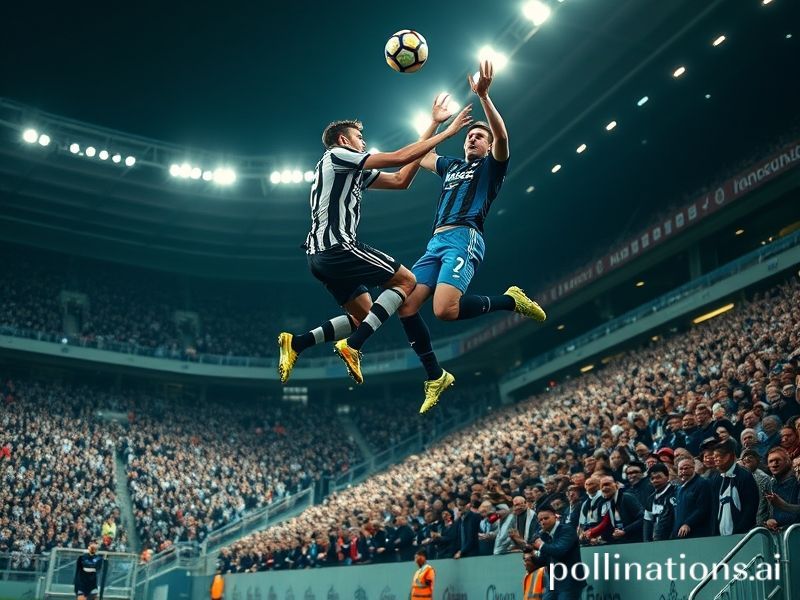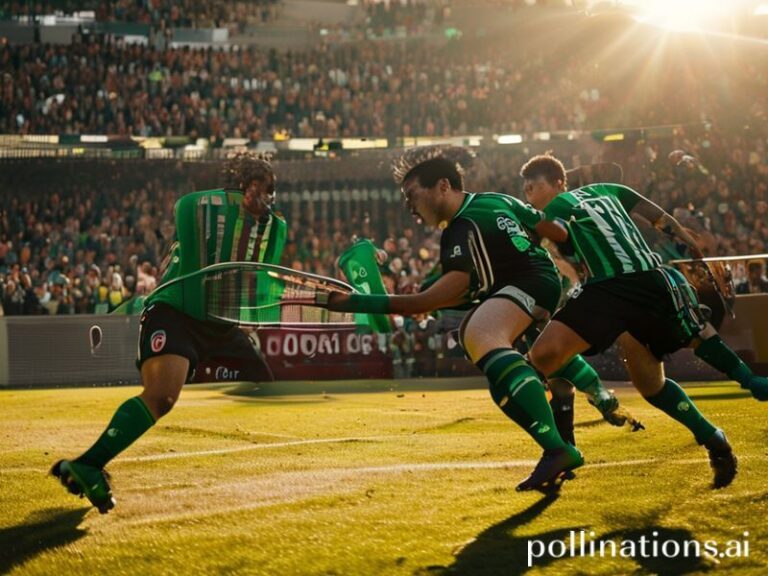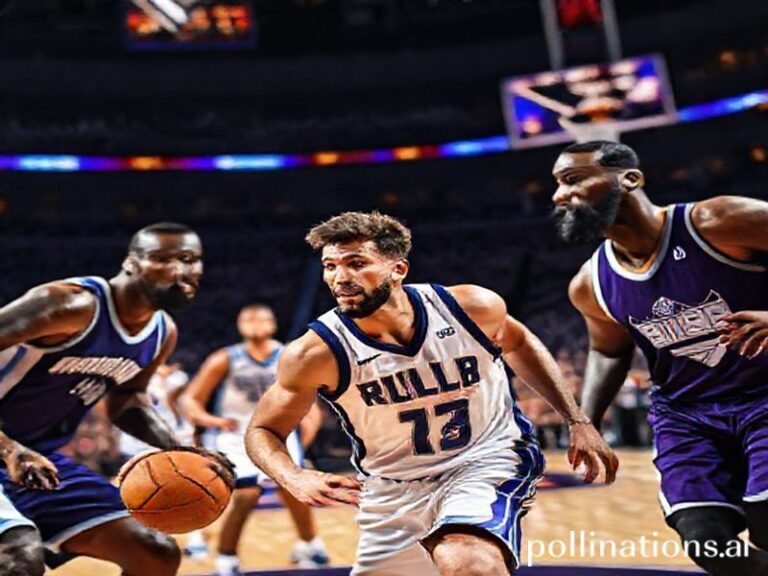Juventus vs Inter: When a Football Derby Becomes a Global Financial Stress Test
Juventus vs Inter: The Derby That Could Start a Small Trade War
By Dave’s Foreign Correspondent Somewhere Between Milan and Turin, Nursing an Overpriced Espresso
The Derby d’Italia is back, and for once the Italian government isn’t the most dysfunctional thing on display. Juventus—fresh from accounting classes and a 15-point deduction that vanished like a Roman politician’s promise—host Inter, who spent the summer calculating how many Champions League knock-out rounds they can lose before anyone notices. On paper it’s a Serie A fixture; in practice it’s a geopolitical séance where oil money, hedge-fund daydreams, and a half-billion-dollar Super League grudge all show up wearing retro shirts.
Globally, the match is less about three points and more about who gets the moral high ground in the never-ending argument over whether football is a business or a religion. Spoiler: it’s both, and the collection plate is passed via streaming subscriptions in 189 countries. Rupert Murdoch’s ghost hovers somewhere above the Allianz Stadium, quietly tallying ad-revenue per gasp.
Consider the cast. Juventus’s boardroom now features Gianluca Ferrero, a man whose surname sounds like an overpriced chocolate but whose balance sheets taste distinctly of austerity. Across the peninsula, Inter’s American owners—Oaktree Capital, essentially a hedge fund with a sideline in centre-backs—have turned the club into a leveraged haiku: short-term loan, long-term panic. Should Inter default, Oaktree could seize the club faster than you can say “credit default swap,” instantly transforming the San Siro into the world’s most scenic repo.
The match therefore doubles as a stress test for the EU’s post-Brexit financial regulations. If Juve win, continental auditors will claim vindication for their crusade against creative bookkeeping. If Inter prevail, expect a thousand think-pieces on how private equity is the future of sport, written by the same pundits who swore NFTs were the future last year. Either way, Goldman Sachs interns in London are already drafting the inevitable “Football as an Asset Class” memo, complete with heat maps that look suspiciously like missile-defence schematics.
Meanwhile, the geopolitical ripples lap distant shores. In Qatar, beIN Sports executives pray for a 90-minute thriller to justify their Serie A rights fee, which is roughly the GDP of a small Pacific island. In Beijing, streaming platforms debate whether to pixelate the gambling sponsors, a moral quandary complicated by the fact that half the league’s shirts look like scratch cards. And in Washington, the State Department monitors ultra-group Twitter for any anti-NATO chants, because nothing says “global stability” like 5,000 ultras yelling about 19th-century borders.
The players themselves are mere subcontractors in this grand farce. Dušan Vlahović, Juventus’s moody Serbian striker, has the haircut of a 1990s war criminal and the finishing of a man who knows his next endorsement deal depends on TikTok engagement. Inter’s Lautaro Martínez, meanwhile, runs like he’s late for a crypto conference in Miami, which, knowing his agent, he probably is. Both are worth more than the GDP of several UN member states, a fact that keeps humanitarian lawyers awake at night.
And yet, for 90 minutes, the circus masquerades as community. Fans from Jakarta to Jersey City will set alarms for ungodly hours, don knock-off jerseys manufactured in the same Bangladeshi sweatshops, and scream at televisions whose components were mined by children in the Congo. The beautiful game indeed—so beautiful it could fund a minor conflict.
When the whistle blows, one set of supporters will celebrate like they’ve cured inflation; the other will mourn as if democracy itself had been relegated. Both reactions will be clipped, memed, and monetised before the players leave the pitch. By Monday morning, the result will be reduced to a single line on Bloomberg’s market wrap: “Juve rally 3% on derby win; Inter bonds slide.” Somewhere in Davos, a panel on “Sporting Outcomes as Leading Economic Indicators” will nod approvingly.
So raise your €12 stadium beer to the absurdity of it all. The Derby d’Italia isn’t just a football match; it’s late capitalism in shorts, running around for our entertainment while the world burns politely in the background. And the best part? We’ll do it all again next season—assuming, of course, the clubs still exist.
Game on. Try not to think about the interest rates.







